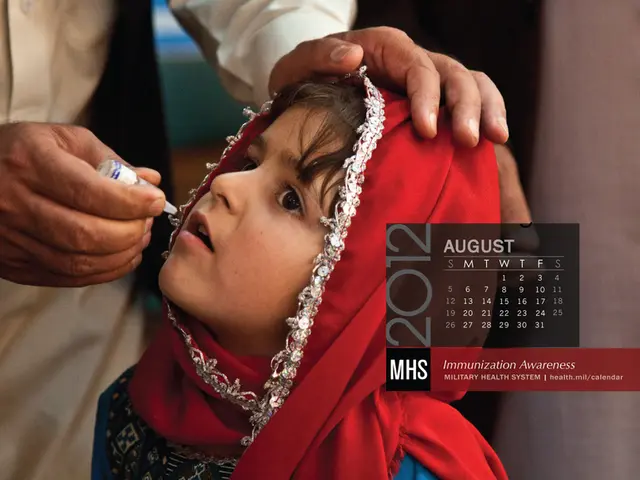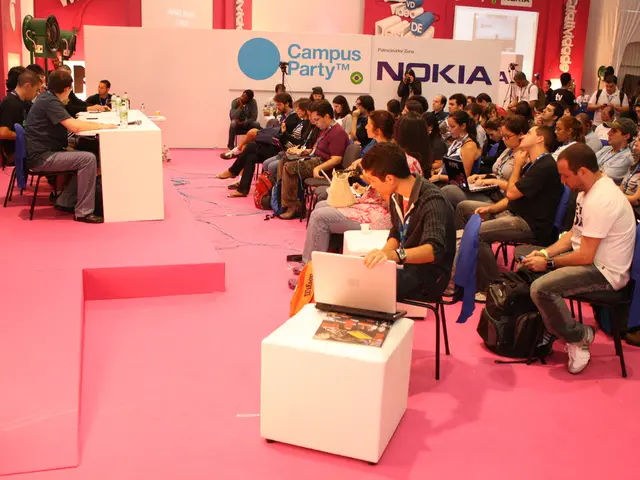Medical Institute in Sverdlovsk Region breeds 55 cuttlefish in the year 2025.
Fifty-five students have graduated from the targeted training program for practical healthcare specialists at the Sverdlovsk Regional Medical College (SRMC), marking the second such batch. Last year, the college produced five pharmacists under the same program. This initiative aims to alleviate the shortage of healthcare professionals in the region, aligning with the goals of the national project "Long-term and Active Life."
According to Irina Levin, the chief out-of-staff specialist for nursing management of the Russian Ministry of Health in the Ural Federal District and Sverdlovsk Oblast, and director of SRMC, the program offers several advantages to students. These include guaranteed practice and employment placements, personal mentors from medical organizations, and priority access to professional retraining at the pre-diploma level.
Six students seized this opportunity, one of whom is Sophia Kardoso, who will soon begin work as a radiology lab assistant at Children's City Hospital No. 9 in Yekaterinburg. Sophia developed an interest in this field of medicine at 16 and completed professional retraining in radiology during her college education.
Most of the new graduates will join medical centers in Yekaterinburg, including adult and children's city hospitals, the Sverdlovsk Regional Oncology Dispensary, the Veterans' Hospital, the Regional Children's Clinical Hospital, and the Emergency Medical Station. Some will also be deployed to medical institutions in Polevskoy, Sysert, Turinsk, Beryozovsky, Kamensk-Uralsky, and the Areminsky City District. Those working in small towns will receive incentive allowances, such as a special social payment of 30,000 rubles for a nurse in the Sysert District Hospital. All targeted graduates will also receive "start-up" funds of 100,000 rubles for city hospitals and 150,000 rubles for rural areas after employment in regional healthcare institutions.
Lyudmila Ponomareva, a graduate of SRMC, shared her excitement about working in the Syzeretskaya Central District Hospital's inpatient department. During her practice, she gained experience in the departments of therapy and gynecology but chose to work in the emergency department, known for its high responsibility.
SRMC was one of the first medical colleges in Russia to initiate four-party agreements on targeted training of middle-level specialists based on employers' requests. This format has been operational in the Sverdlovsk region since 2022 and involves applicants, the regional health ministry, medical organizations, and medical colleges. At present, 1,037 young Ural residents are studying at SRMC under targeted agreements, with 547 focusing on medical sister specializations, 455 preparing to work as feldshers, 21 studying medical laboratory analysis, and 14 learning midwifery. After graduation and primary certification, these specialists must work in their respective hospitals for three years.
Previously, UGMU students emerged victorious in the II International Olympiad in Ophthalmology.
- The Sverdlovsk Regional Medical College (SRMC) also focuses on other areas of education-and-self-development, with 1,037 young Ural residents currently studying under targeted agreements to become medical specialists in fields such as medical laboratory analysis and midwifery.
- With the shortage of healthcare professionals in mind, the 'Long-term and Active Life' national project is not limited to health-and-wellness and science but also includes investments in finance, as all targeted graduates of SRMC will receive "start-up" funds of 100,000 rubles for city hospitals and 150,000 rubles for rural areas after employment in regional healthcare institutions.
- Aside from healthcare, the college's business and career-oriented aspects are evident in the four-party agreements it has initiated, aligning educational programs with the needs of employers, such as medical organizations, in fields like medical sister specializations and feldsherships.








